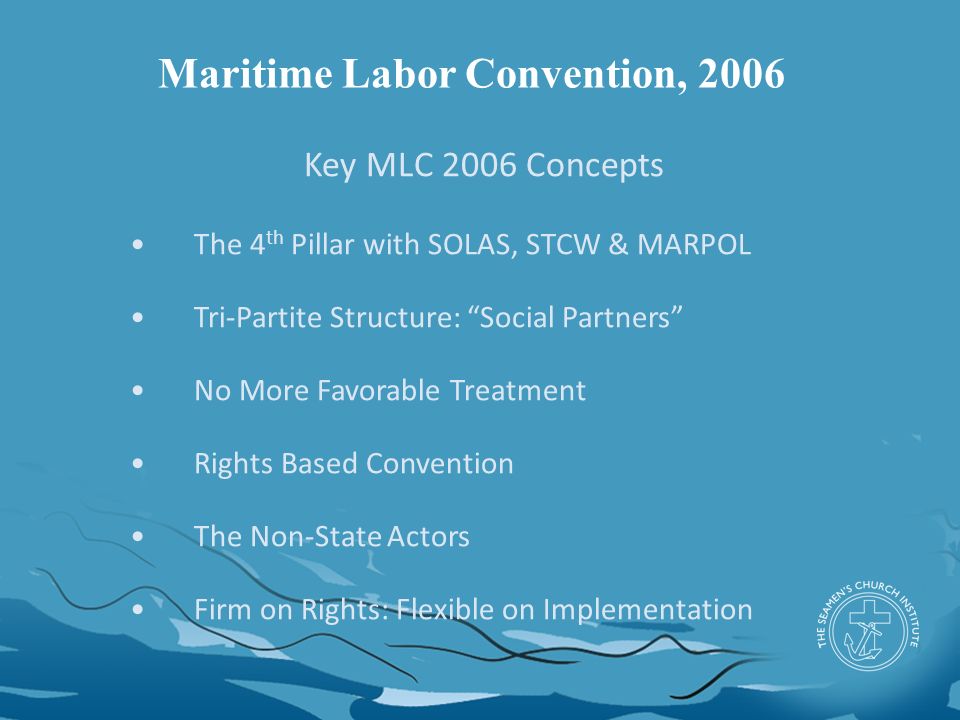International Convention on Standards of Training, Certification and Watchkeeping for Seafarers (STCW)
The 1978 STCW Convention was the first to establish minimum basic requirements on training, certification and watchkeeping for seafarers on an international level. Previously the minimum standards of training, certification and watchkeeping of officers and ratings were established by individual governments, usually without reference to practices in other countries. As a result, minimum standards and procedures varied widely, even though shipping is extremely international by nature.
The Convention prescribes minimum standards relating to training, certification and watchkeeping for seafarers which countries are obliged to meet or exceed.
The four basic STCW courses are as follows:
Personal Safety and Social Responsibilities – This is a classroom-based course that focuses on teaching the essentials of basic safety.
BASIC Fire Prevention and Fire Fighting – This firefighting course covers both practical and theoretical situations that are taught by professional firefighters.
Personal Survival Techniques – A theory and practical course, you will be taught how to abandon ship using life rafts and also how to don life jackets correctly.
Elementary First Aid – A theory and practical course, during this session you will be taught vital basic 1st aid and life savings skills.
Proficiency in Security Awareness - This course is not normally part of basic STCW week; however it is a required course that you must complete prior going to sea. Normally, if you book onto the 4 mandatory courses listed above, your course supplier will include this one for free. It's a half day course that can easily be slotted into your training week, and is designed to explain how security systems work on board.
International Convention for the Safety of Life at Sea (SOLAS)
The International Convention for the Safety of Life at Sea (SOLAS) is an international maritime treaty which sets minimum safety standards in the construction, equipment and operation of merchant ships. The convention requires signatory flag states to ensure that ships flagged by them comply with at least these standards.
The current version of SOLAS is the 1974 version, known as SOLAS 1974, which came into force on 25 May 1980. As of November 2018, SOLAS 1974 had 164 contracting states,which flag about 99% of merchant ships around the world in terms of gross tonnage.
SOLAS in its successive forms is generally regarded as the most important of all international treaties concerning the safety of merchant ships.
International Convention for the Prevention of Pollution from Ships (MARPOL)
The International Convention for the Prevention of Pollution from Ships (MARPOL) is the main international convention covering prevention of pollution of the marine environment by ships from operational or accidental causes.
The MARPOL Convention was adopted on 2 November 1973 at IMO. The Protocol of 1978 was adopted in response to a spate of tanker accidents in 1976-1977. As the 1973 MARPOL Convention had not yet entered into force, the 1978 MARPOL Protocol absorbed the parent Convention. The combined instrument entered into force on 2 October 1983. In 1997, a Protocol was adopted to amend the Convention and a new Annex VI was added which entered into force on 19 May 2005. MARPOL has been updated by amendments through the years.
The Convention includes regulations aimed at preventing and minimizing pollution from ships - both accidental pollution and that from routine operations - and currently includes six technical Annexes. Special Areas with strict controls on operational discharges are included in most Annexes.
These are the Annexes in the convention:
-Annex I Regulations for the Prevention of Pollution by Oil (entered into force 2 October 1983)
-Annex II Regulations for the Control of Pollution by Noxious Liquid Substances in Bulk (entered into force 2 October 1983)
-Annex III Prevention of Pollution by Harmful Substances Carried by Sea in Packaged Form (entered into force 1 July 1992)
-Annex IV Prevention of Pollution by Sewage from Ships (entered into force 27 September 2003)
-Annex V Prevention of Pollution by Garbage from Ships (entered into force 31 December 1988)
-Annex VI Prevention of Air Pollution from Ships (entered into force 19 May 2005)
Maritime Labour Convention (MLC)
The Maritime Labour Convention (MLC) is an International Labour Organization convention, number 186, established in 2006 as the fourth pillar of international maritime law and embodies "all up-to-date standards of existing international maritime labour Conventions and Recommendations, as well as the fundamental principles to be found in other international labour Conventions". The other "pillars are the SOLAS, STCW and MARPOL. The treaties applies to all ships entering the harbours of parties to the treaty (port states), as well as to all states flying the flag of state party (flag states, as of 2019: over 90 per cent).

No comments:
Post a Comment